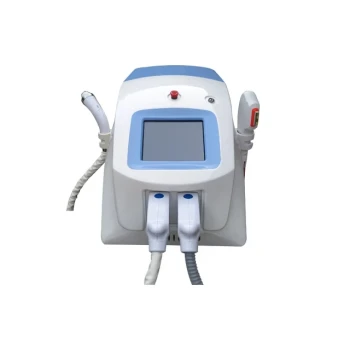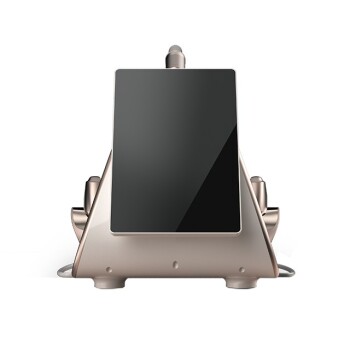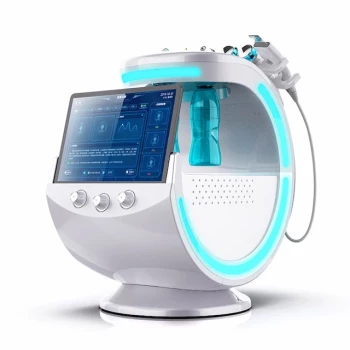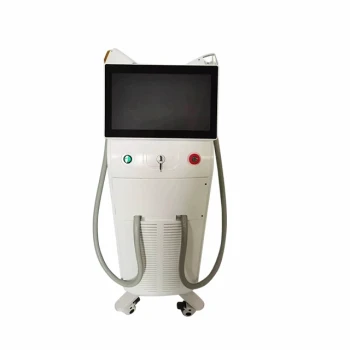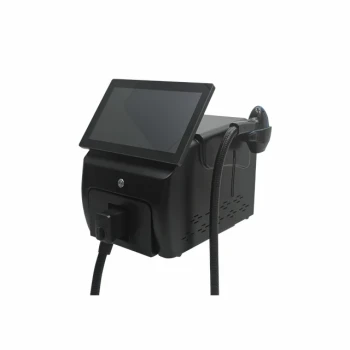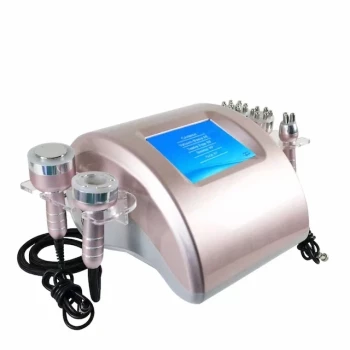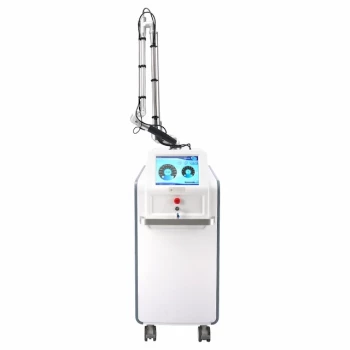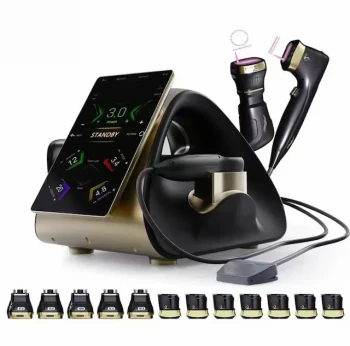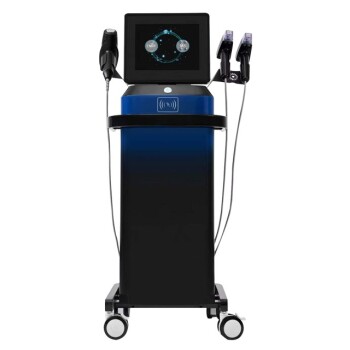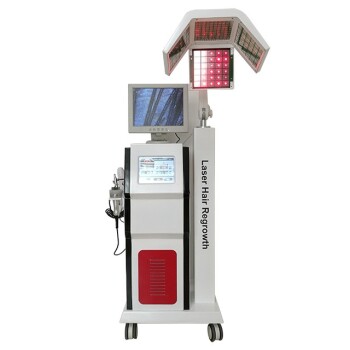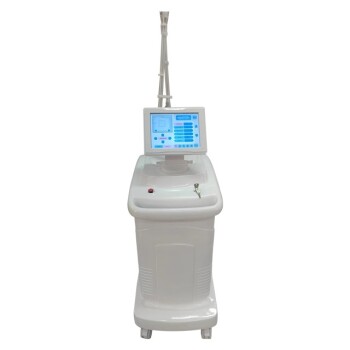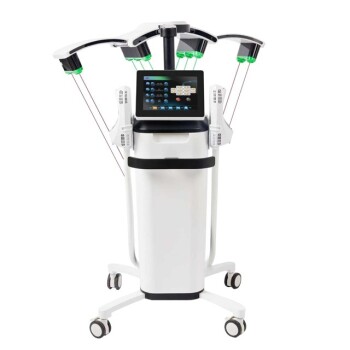In short, you should not get Intense Pulsed Light (IPL) treatment if you have tanned or naturally dark skin, or if you have recently taken the medication Accutane. For individuals with darker skin tones, the light can be absorbed by the surrounding skin instead of the target, leading to a risk of discoloration or burns. For those on certain medications, the skin becomes highly sensitive to light, dramatically increasing the risk of an adverse reaction.
The decision to undergo IPL is not just about its potential benefits, but about a clear-eyed assessment of its risks. The procedure's effectiveness is based on a contrast between the target (like a sunspot or hair follicle) and the surrounding skin, and when that contrast is low, the risk of complications rises significantly.

The Core Principle: How IPL Targets Pigment
Understanding Light Absorption
Intense Pulsed Light therapy works by emitting a broad spectrum of light that penetrates the skin. This light energy is specifically absorbed by chromophores, which are the parts of a molecule responsible for its color.
In cosmetic dermatology, the primary targets are melanin (the pigment in hair and dark spots) and hemoglobin (the red pigment in blood vessels).
Heat as the Mechanism of Action
When the target chromophore absorbs the light, the energy is converted into heat. This controlled thermal damage is what produces the desired result—destroying a hair follicle, breaking up a pigmented lesion, or collapsing a broken capillary.
Key Contraindications: Who Must Avoid IPL?
The effectiveness and safety of IPL hinge entirely on the device's ability to selectively heat the target without damaging the surrounding tissue. Certain conditions and characteristics disrupt this process, making the treatment unsafe.
Individuals with Tanned or Naturally Dark Skin
This is the most critical contraindication. IPL devices cannot easily distinguish between the melanin in a dark spot and the melanin in naturally dark or tanned skin.
When performed on darker skin tones (typically Fitzpatrick scale types IV-VI), the light is absorbed by the surrounding skin itself. This can lead to painful burns, blistering, and permanent skin discoloration, including hyperpigmentation (darkening) or hypopigmentation (lightening).
Users of Photosensitizing Medications
Certain medications dramatically increase your skin's sensitivity to light. The most well-known is isotretinoin (Accutane).
Anyone taking Accutane must wait at least six months after their final dose before considering IPL. Treating skin that is sensitized by this drug can result in severe burns and scarring. Other photosensitizing drugs, including some antibiotics and topical retinoids, also pose a risk.
People with Active Skin Conditions
You should not receive IPL on areas with an active skin infection or inflammatory condition. This includes active acne cysts, cold sores (herpes simplex), eczema, psoriasis, or any open wounds. The intense light can severely aggravate these conditions and delay healing.
Pregnant Individuals
While there is no direct evidence that IPL harms a developing fetus, no safety studies have been conducted to prove it is safe. Due to this lack of data and the potential for unknown risks, pregnancy is considered an absolute contraindication for all elective cosmetic procedures, including IPL.
Those with a History of Certain Medical Conditions
Individuals with a history of skin cancer (melanoma) or a predisposition to keloid scarring (thick, raised scars) are not good candidates. The intense light energy could potentially stimulate abnormal cell growth or trigger excessive scar tissue formation.
Understanding the Risks and Trade-offs
Even for suitable candidates, it's crucial to understand the potential downsides. The risk of these complications is significantly higher if you have any of the contraindications mentioned above.
Burns and Blistering
This is the most immediate risk, often caused by the energy setting being too high for your skin type or by treating contraindicated skin. It signifies that the surrounding tissue was overheated along with the target.
Permanent Pigmentary Changes
This is a more lasting complication. Hyperpigmentation is the darkening of skin in the treated area, while hypopigmentation is the lightening of the skin. These results can be very difficult to correct and are a primary risk for those with darker or tanned skin.
Ineffective or Paradoxical Results
For some, the risk is not danger but disappointment. IPL is ineffective on light-colored hair (blonde, grey, or red) because there is not enough melanin to absorb the light. In rare cases, a phenomenon called paradoxical hypertrichosis can occur, where hair growth is stimulated rather than reduced.
Making a Safe and Informed Decision
Your safety is paramount. Always approach elective procedures with a clear understanding of your own health profile and the technology's limitations.
- If your primary focus is safety: Absolutely avoid IPL if you have naturally dark skin, are pregnant, have used Accutane within six months, or have a history of skin cancer or keloid scarring.
- If your primary focus is achieving the best result: The ideal candidate has light, untanned skin and a dark target, such as dark hair or brown sunspots.
- If you are considering treatment for any reason: Always provide your practitioner with a complete medical history, including all medications and supplements you are taking, and insist on a patch test before treating a large area.
Ultimately, the most important step is a thorough consultation with a qualified and experienced dermatologist or licensed provider who can accurately assess your skin and advise you honestly.
Summary Table:
| Contraindication | Key Reason to Avoid |
|---|---|
| Tanned or Dark Skin (Fitzpatrick IV-VI) | Risk of burns, blistering, and permanent skin discoloration. |
| Recent Use of Isotretinoin (Accutane) | Skin is highly photosensitive; risk of severe burns and scarring. |
| Active Skin Conditions (e.g., acne, eczema, cold sores) | Can aggravate the condition and delay healing. |
| Pregnancy | Lack of safety data for the fetus; considered an absolute contraindication. |
| History of Skin Cancer or Keloid Scarring | Potential to stimulate abnormal cell growth or excessive scarring. |
Prioritize Patient Safety with Professional-Grade Equipment
Unsure if a client is a suitable candidate for IPL? Using the right technology is the first step to ensuring safety and efficacy. BELIS specializes in professional medical aesthetic equipment, designed for the precise needs of medical aesthetics clinics and premium beauty salons.
Our advanced IPL systems offer superior control and safety features, helping you deliver confident, high-quality treatments. Let's discuss how our equipment can become a cornerstone of your practice's safety protocol.
Contact our experts today for a personalized consultation.
Visual Guide

Related Products
- IPL SHR+Radio frecuency machine
- Hydrafacial Machine Facial Clean Face and Skin Care Machine
- Hydrofacial Machine with Facial Skin Analyzer and Skin Tester
- 4D 12D HIFU Machine Device for Skin Tightening and Lifting
- 12D HIFU Machine Device for Facial HIFU Treatment
People Also Ask
- What safety considerations must estheticians follow when using radio frequency machines? Expert Safety Guide
- How does SHR Laser Hair Removal differ from traditional IPL? Discover the Painless Secret to Permanent Smooth Skin
- What types of pigmented lesions can be treated with IPL SHR laser technology? Expert Insights for Clearer Skin
- What factors should be considered when choosing a radio frequency machine for an esthetic practice? A Buyer's Guide
- How does the adjustment of pulse duration in an IPL system influence clinical outcomes? Optimize Treatment Precision
